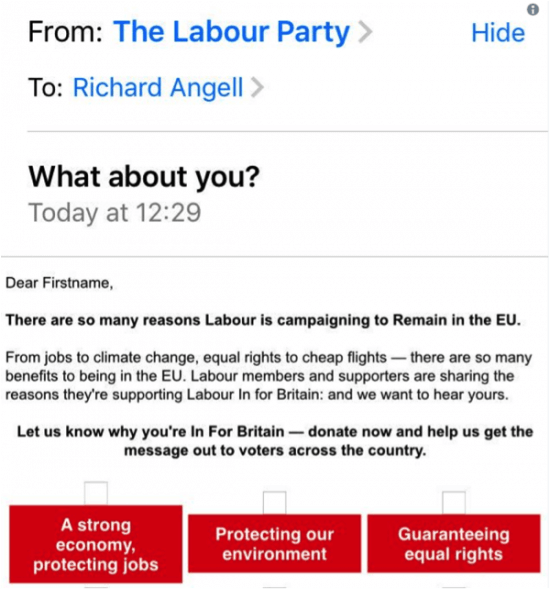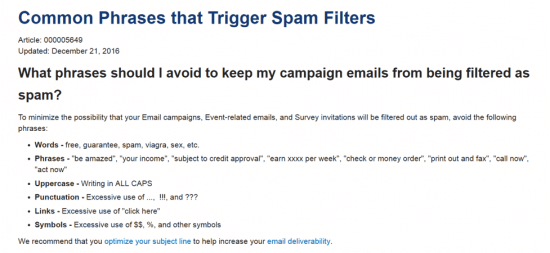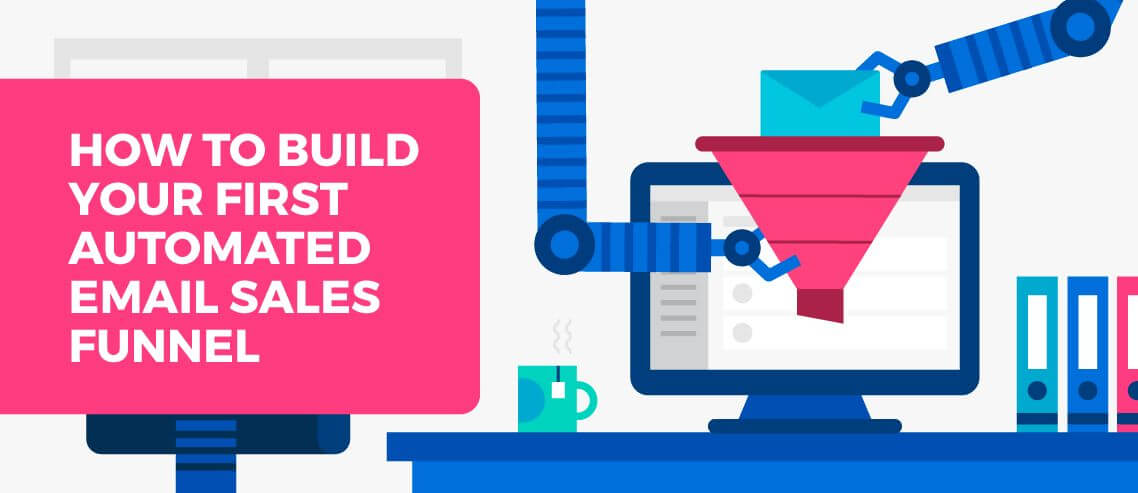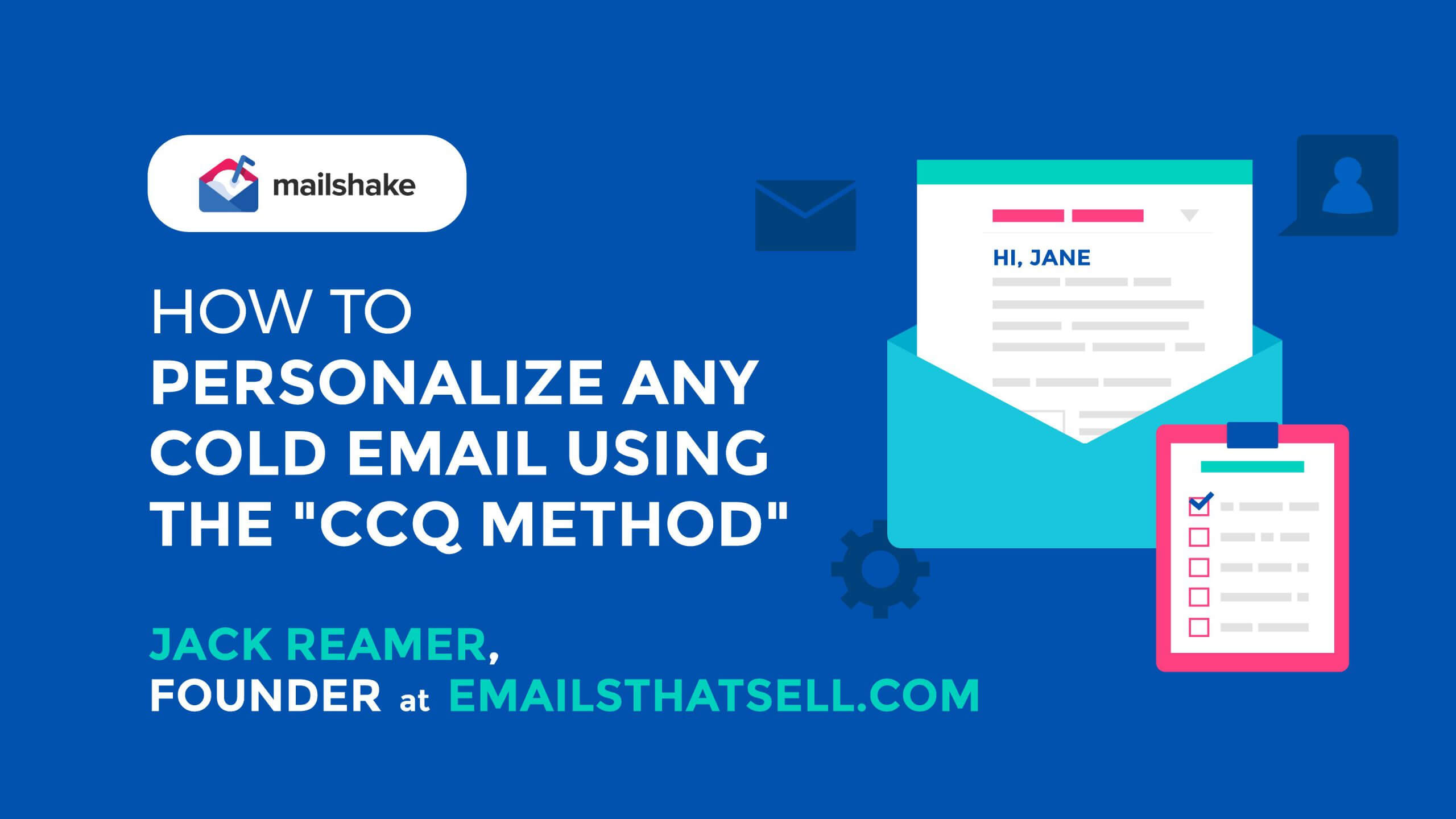10 Words and Phrases You Should Never Include in a Cold Email Opening

Contents
The internet is full of wisdom on “power” words to include in your cold sales emails or in the subject lines that are most likely to earn you opens.
But what do you do when you’ve optimized your subject lines into the ground? It’s time to turn your attention to your opening line – which Customer.io’s Colin Nederkoorn calls the most important line in your email, after your subject line:
“Like peanut butter and jelly, your subject line and first line belong together. And if you pair them well they can work wonders for your open rates.”
In part, your opening line is important because it’s often displayed as a preview line within your prospect’s inbox (depending on their provider and inbox display). But even when this isn’t the case, your opening line is what compels prospects to read further and engage with your total message.
Don’t derail this engagement with words and phrases that have no place in cold sales emails. Rid your templates of the following 10 suggestions for maximum clarity and conversions.
1. “[COMPANY NAME]”
Let’s talk form fields.
MarketingLand reports that “Personalized emails deliver six times higher transaction rates.” Unfortunately, many marketers have taken this to mean, “Throw a couple of form fields into an email and call it a day.”
There are two problems with this approach. First, you’re making the assumption that your data is 100% unimpeachable. In the real world, everything from data entry errors to “creative” opt-in form field fills from those who don’t want to share their real identities could result in unintended errors making it through to your prospects.
Improper use of form fields in cold sales email templates can also lead to stilted language – or, worse yet, field population glitches like the one made by the UK’s Labour Party:

If you’re going to use form fields in your cold sales email templates, you need two things:
- The ability to preview individual messages to ensure no errors slip through the cracks
- Personalization that goes beyond “FIRST NAME” and “COMPANY NAME” (for example, CTA personalization based on lead characteristics)
2. “Re: [subject]”
Technically, this is used more often as a “subject line hack,” but since your subject and opening lines are connected – as discussed earlier – this one is worth mentioning here.
Don’t fake a reply to try to get your prospect’s attention. Adding “Re:” to an original message might seem as if it’ll lead to more opens. But once your prospects realize they’ve been deceived, it’s not going to matter how many opens you get. You’ve already damaged relationships you haven’t even built yet.
3. “Hey”
Most people who open an email with “Hey” or “Hey there” do so with good intentions. They want to come across as casual and fun. But what they may actually be unintentionally telegraphing is disrespect for the recipient.
Babette Ten Haken, president and founder of Sales Aerobics for Engineers, explains it this way:
“‘Hey’ and ‘Hello There’ are easily perceived as disrespectful greetings in many professional contexts. Is this the outcome you want to achieve if you are trying to engage a prospect in doing business with you or funding your venture?”
With a cold email, you have no history with the recipient; no context for your relationship. Skip the informal greetings and open with something like “Good morning” or “Dear Mr./Mrs. X.”
4. “Really,” “very,” “quite” or “just”
If you sense, intuitively, that certain words have become overused to the point of futility, you aren’t wrong.
Claire Fallon, on Huffington Post, gives nine examples beyond those listed in the header above that have been abused to the point that they’ve actually taken on entirely new definitions to suit their modern usage:
- Literally
- Unique
- Awesome
- Amazing
- Totally
- Basically
- Incredible
- Absolutely
- Unbelievable
Take the example of “literally.” Once, the word used to mean “in a literal or strict sense.” Thanks to widespread adoption, it now means the opposite: “in a figurative sense.”
Semantics aside, what you need to know from a marketing perspective is that these changes in meaning can impact the effectiveness of your emails. Sabrina Bianchi, in an article on the Predictable Revenue blog, shares the following example:
“When it’s used as a filler word, “just’ weakens your writing. Often used in the first sentence of an email (such as “I just wanted to follow-up”), it almost sounds like you’re apologizing for contacting a prospect when instead you should be making them feel excited. By removing it you tighten your sentence and add gravity to your words.”
Skip the exaggerations. Stick to language that conveys your point clearly, without unnecessary ornamentation.
5. “Stuff” or “things”
Like the words listed above, empty descriptors like “stuff” or “things” are meaningless – though for different reasons.
“Stuff” and “things” are lazy words. They’re unclear. What specifically are you referring to? And why wouldn’t you simply name them directly in the first place?
Words like these promise vague benefits – and vague benefits don’t get people to take action. Be specific, clear and concise with the words you choose for your opening line. If the “things” you’re referring to are benefits, features or resources, refer to them by name.
6. “Discount” or “free”
Two problems here.
First, words like “discount” and “free” are known spam filter triggers. Constant Contact calls them out directly in a Knowledge Base entry on words to avoid when email marketing:

But even assuming you make it into a prospect’s inbox with language like that, you’ve already cheapened the perceived value of what you’re offering. How do you expect to prove your value in the future when you’ve opened with your willingness to give away your products or services for low or no money?
7. “Honest” or “honestly”
Read the following cold sales email opening line and think about how you feel:
Good morning,
I’m going to be honest. I have something that I think will change the way you do business.
Having read through that, do you genuinely believe the sender is being honest with you?
Thanks to generations of unscrupulous snake oil salesmen, the words “honest” and “honestly” trigger an immediate distrust in those hearing them (pair “honestly” with “folks,” and you’ll get what I mean).
I don’t care if you really are being honest. Skip the word in your cold sales emails or risk conveying the exact opposite.
8. “Are you the decision maker?”
If you’re guilty of including this phrase in your cold sales email opening, stop right now. Do not pass GO. Do not collect $200.
If you’ve ever been on the receiving end of a poorly-targeted sales message, you know how frustrating it can feel to have your time wasted. Don’t do the same to your recipients.
Heather Morgan, founder of Salesfolk, describes the challenge of identifying decision makers – and of getting your cold email messaging wrong – in an Inc. article:
“Cold emails are always something of a gamble. But phrases like this simply underscore the uncertain and scattershot approach you’re taking to selling. If the reader was, in fact, the decision maker, they would not need to be reminded of it. And if they were not, they certainly don’t need you to point out how irrelevant and poorly targeted your message is.”
Whenever you send a sales email, you should have done your homework well enough to know whether or not you’re reaching out to the right person.
Not only is that common courtesy, but data shared by Tucker Max on the Harvard Business Review website suggests that “people are far more motivated to help others when they feel uniquely qualified to do so.”
Can you remember a time when you helped someone out of the goodness of your heart, because you believed you had the answers they were looking for? Summon that same response in your prospects by making it clear that you’ve reached out to them personally for a reason.
9. “I’d love to set up a meeting”
Cold email is a science as much as an art. As you create your templates, don’t let the detached nature of email (compared to cold calling, at least) cause you to forget the core science of selling: it isn’t about you.
All good cold sales emails should have a call to action, and a scheduled meeting might be the desired outcome you choose to measure.
But strike this particular phrase from your vocabulary when it comes to asking for that meeting, as it frames the request entirely in terms of your own benefit.
What does the recipient get out of setting a call with you? Put the emphasis on that – not on how much you’d benefit from doing so.
10. “Can I send you more information?”
Maybe this is a personal pet peeve, but “more information” is the last thing I want or need.
Unless the email has done some seriously heavy lifting to get me excited, “more information” just means more work for me. It means sorting through generic sales materials sent to all prospects, hoping I can find something that’s relevant to me. And it probably means being pressed to schedule a follow-up call – all to go over the information I don’t want to read.
I’ll get off my soapbox. We all know inbox clutter is a major barrier to successful cold sales emails. If you want to be the message that breaks through the noise, you need to be more compelling – with everything from your opening line to your closing CTA – than this line allows.
Writing Powerful Cold Sales Email Openings
Obviously, these aren’t the only words and phrases you’ll want to avoid when opening your cold emails. There are as many ways to negatively affect an email’s effectiveness as there are people writing them.
Ultimately, the way you structure your messages must come down to performance. Watch your open, click and conversion rates. Test different openings to see which options work best. Let the numbers guide you to the best cold sales email opening lines.
Image: Pixabay





